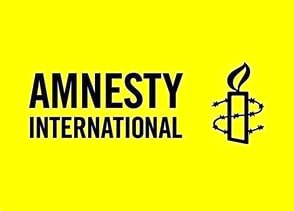“2021 should have been a year of healing and recuperation. Instead, it became an incubator for greater inequality and instability”. Agnès Callamard, Secretary General
Which language would you like to use this site in?
Amnesty International’s annual report on the state of the world’s human rights in 2021, published in March 2022, shows that promises to “build back better” after the Covid-19 pandemic were little more than lip service. Hopes of global cooperation withered in the face of vaccine hoarding and corporate greed.
Governments suppressed
independent and critical voices, with some even using the pandemic as a pretext
to shrink further the civic space. New and unresolved conflicts erupted or
persisted. Those forced to flee were subjected to a litany of abuses, including
pushbacks by countries in the Global North.
But hopes for a better
post-pandemic world were kept alive by courageous individuals, social movements
and civil society organizations.
2021 should have been a year
of healing and recuperation. Instead, it became an incubator for greater
inequality and instability
The annual report highlights
the impact of these dynamics at a global, regional and national level, as well as
more broadly covering the human rights situation in 154 countries.
POINTS OF INTEREST
The interactive map below
highlights themes prioritized in the annual report’s preface and global
analysis: health and inequalities, civic space, conflict, and refugees and
migrants. It does so by featuring selected summary statements on four countries
from each of the five regions covered by the report.
Visit our country pages to read about human rights in 2021 in each country covered. Or download the full report in PDF format, available in a variety of languages. Or read our press release.



Nessun commento:
Posta un commento